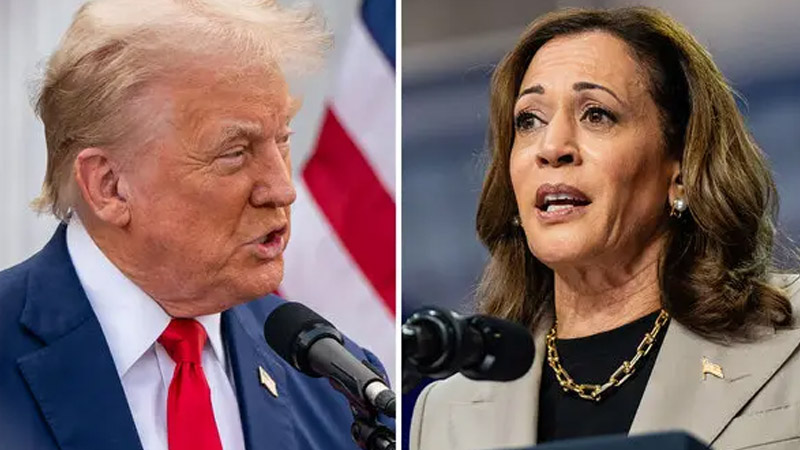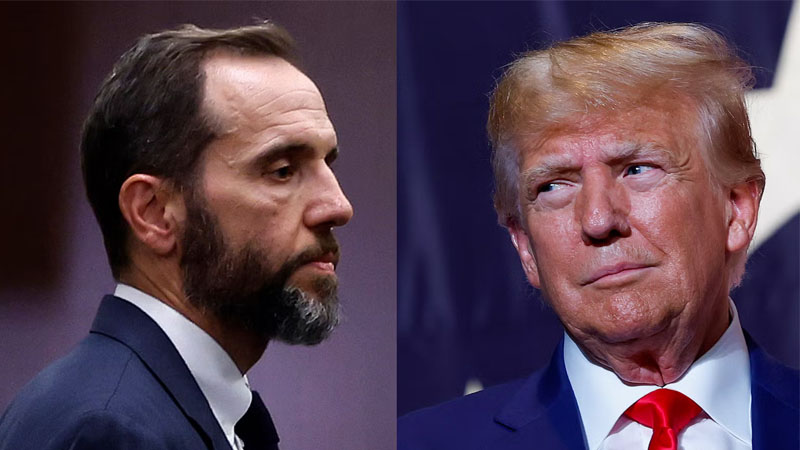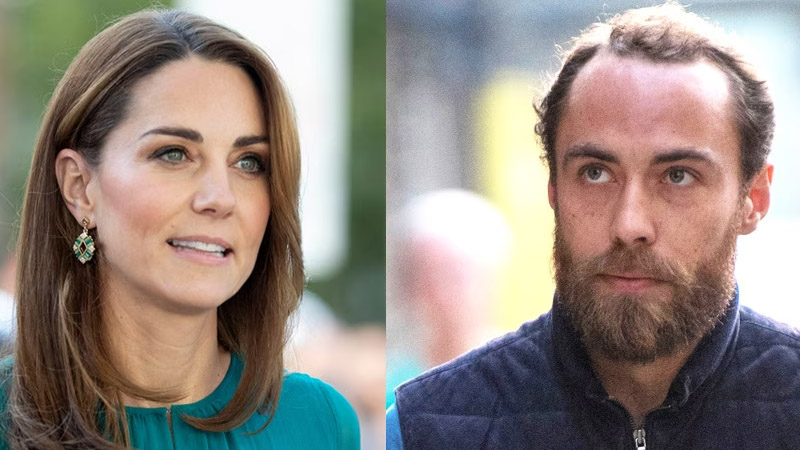Trump Spirals After Debate Loss to Kamala Harris, Focusing on Conspiracy Theories, Says Reporter

Joe Raedle/Getty Images; Anna Moneymaker/Getty Images
Former President Donald Trump has been on a downward spiral since losing the last presidential debate to Vice President Kamala Harris, following what a reporter described as his “worst political instincts.” According to Dan Balz, the chief correspondent for national politics at The Washington Post, Trump has become fixated on conspiracy theories and topics that matter least to voters.
Balz, reporting on Sunday, highlighted how Trump has a long-standing habit of rewriting history to serve his narrative. “Former president Donald Trump has long inhabited a bizarre world of his own creation,” Balz wrote. “It keeps getting worse.”
Balz continues:
“Since Tuesday’s debate with Vice President Kamala Harris, he’s spiraled ever deeper into conspiracy theories, falsehoods and grievances. He insists he is not a loser. He never lost the 2020 election, he says falsely, and he certainly didn’t lose that debate in Philadelphia. He claims victory in an event in which he spent 90 minutes chasing Harris’s barbs down every possible rabbit hole. He rarely managed to get off the defensive long enough to make a case against her — and when he did, he was barely coherent.”
Balz’s point is reinforced by the fact that, also on Sunday, Trump took to his social media network, Truth Social, to attack the New York Times and billionaire pop singer Taylor Swift. “I HATE TAYLOR SWIFT!” the former president wrote.
Trump’s inability to accept the outcome of the debate with Harris mirrors his refusal to acknowledge his defeat to President Joe Biden four years ago. According to Balz, “Trump simply can’t accept the widely held verdict that Harris outdid him, just like he couldn’t accept that President Joe Biden defeated him.”
At a rally in Las Vegas on Friday, Trump fueled baseless claims, a hallmark of his post-debate rhetoric. During the rally, he alleged that Harris had an unfair advantage during the debate by receiving questions in advance. Elevating a conspiracy theory that had circulated on social media, Trump falsely claimed that Harris was using hearing devices hidden in her earrings and being coached in real time on what to say.
“He did it in classic Trump style, citing unspecified hearsay as proof,” Balz noted, adding that Trump’s penchant for such fabrications continues to damage his political standing. “Trump is known for how he ‘rewrites history — or makes it up entirely — to aggrandize himself, denigrate others and spread the basest of lies,'” Balz wrote.
Since the debate, Trump’s focus on such unfounded claims has frustrated even some within his own party, as voters and political analysts grow weary of his obsession with conspiracy theories over more pressing national issues. Balz’s report underlines the former president’s growing isolation in a political world he increasingly shapes through misinformation and personal grievances.
As Trump continues to repeat these baseless claims at his rallies, it remains to be seen whether his strategy will resonate with voters or further alienate those looking for substantive solutions from their political leaders.


